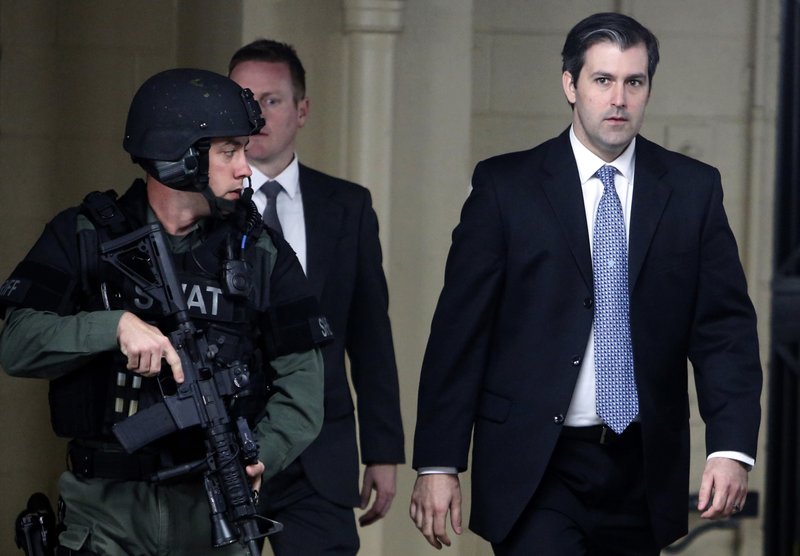COLUMBIA, S.C. -- A former South Carolina police officer will soon learn how long he'll spend in prison for the shooting death -- captured on video by a witness -- of an unarmed motorist.
A sentencing hearing is scheduled to begin in Charleston on Monday for Michael Slager, the former North Charleston police officer in jail since pleading guilty in May to violating Scott's civil rights. Scott was black. Slager is white.
The Scott family last year reached a $6.5 million settlement with the city of North Charleston. Slager, 36, pulled Scott over on April 4, 2015, for a broken brake light. The officer said he shot the 50-year-old black motorist in self-defense when Scott tried to grab his Taser.
But a bystander with a cellphone captured the shooting on video that contradicted Slager's version of events. The video showed Scott getting about 17 feet from Slager before the officer fired eight times at his back. Scott then crumples to the ground, struck by five bullets as he ran away.
State prosecutors went after Slager on murder charges, but a panel of 11 white jurors and one black juror deadlocked last year after 22 hours of deliberations over four days. At one point, a juror sent a letter directly to the judge saying he could not "with good conscience approve a guilty verdict" and that he was unlikely to change his mind.
While that case was ongoing, federal authorities pursued a parallel investigation against Slager on civil rights charges. Solicitor Scarlett Wilson had planned to bring a second case against Slager later this year, but those charges were dropped as part of his federal plea deal.
In Slager's federal sentencing, which could last several days, a judge will determine if Scott's shooting was voluntary manslaughter or murder. Prosecutors have argued for the latter determination, which would make Slager eligible for a life sentence.
In court filings, Slager's attorneys have argued the government has continued to pursue a murder case against their client "to accomplish their unreasonable goal to have Slager spend the remainder of his life in prison." In their own filings, prosecutors said the shooting death did constitute murder, arguing that Slager had malicious intentions when he shot Scott.
From his law officer training, Slager knew he was prohibited from using lethal force against Scott because doing so "against an unarmed, non-dangerous fleeing subject was a gross-deviation from reasonable conduct," thus satisfying the "malice" element of second-degree murder, prosecutors have said.
Slager's attorneys also asked for a reduction in his possible sentence, saying that, due to the nature of his case, he had a "high susceptibility of prison abuse." During the prosecution against him, Slager's attorneys noted, the former officer's home was set on fire, and his family since moved to another location.
Justin Bamberg, an attorney for the Scott family, said he felt Slager's actions warranted a life sentence but that his clients would never truly get closure.
National on 12/03/2017